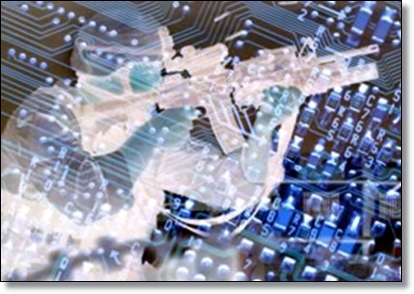Technology: Will World War III be Fought Online?

 |
| Photo courtesy |
Who would have thought that at some point in the evolution of man and technology for that matter, education would be offered online within a virtual classroom with a virtual tutor, and a virtual whiteboard. Doctors can perform major surgical procedures remotely using robots programmed with a very high computer language.
American marines on the ground would soon find themselves without a job-well, at least they'll face less dangers- as drones or pilot-less planes fly to areas considered dangerous or restricted air spaces targeting the enemy forces.
Cyberterrorism and other computer-related crimes like hacking are now a reality in modern times. Computers, networks and databases face constant threats every day as hackers try exploiting loopholes in order to access restricted information or stage a sabotage to an organization.
With the development of cloud computing, all user information and data will now be hosted in some remote server. This means a government whose secrets and classified information are stored up somewhere in the cloud, is susceptible to attacks once its security is compromised.
The war will pit the techno savvy vs the less savvy individuals, governments and institutions. Customers will no longer have to walk to a business premise to transact business with the development of e-business platforms and online shopping.
Government budgets will therefore be channeled towards information technology and the only people who will be spared in the war as it were are people whose lives aren't online. In other words, these are invisible people whose details are still undocumented and/or shared online such that even Google can't find them using the advanced search.
Defense buffers will no longer be soldiers placed strategically at border points as firewalls take over. A country's virtual borders and its security will be as good as the security systems in place and the IT personnel manning them. Faster machines would therefore render humanity redundant as computer technology, artificial intelligence and robotics continue to advance. Neighborhoods will comprise of LANs, WANs & MANs all networked with very high speed internet connections. Everything will be virtual.
That day isn't that far and neither is it romantic...
